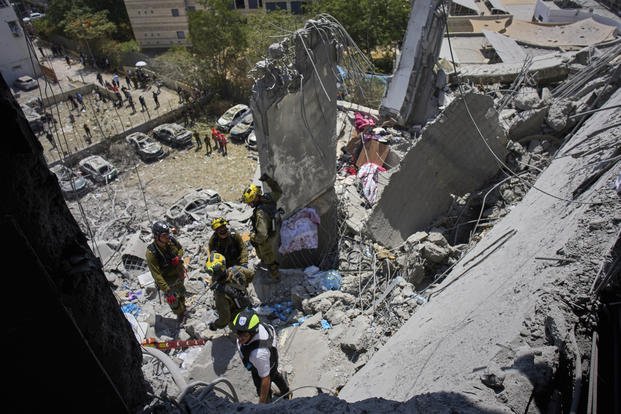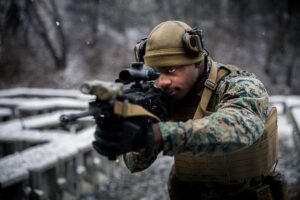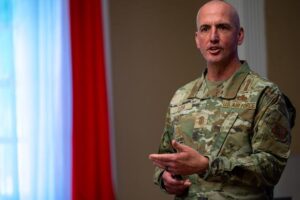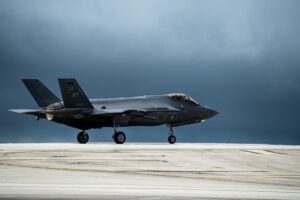The recent escalation in the Middle East has brought renewed attention to Iran’s capacity to pose a threat in the region, even amidst U.S. and Israeli military actions. Vice Adm. Brad Cooper, nominated to lead U.S. Central Command, shed light on these developments during a Senate Armed Services Committee hearing on Tuesday.
Cooper, currently the deputy commander of U.S. Central Command, noted, “At the tactical level, I think they’ve been degraded,” referencing Iran’s capabilities. However, he emphasized that the specifics of this degradation are best left to a “classified forum.” Despite this, Cooper affirmed that Iran still maintains “considerable tactical capability,” as demonstrated in a recent thwarted threat against Al Udeid Air Base.
During his confirmation hearing, Cooper voiced the necessity for constant vigilance, saying, “We’ve got to be in a three-point stance, ready to go, every single day.” This hearing took place against the backdrop of heightened U.S.-Iran tensions following President Donald Trump’s directive for U.S. military action against Iranian nuclear sites, supporting Israel’s stance against the Islamic Republic.
In retaliation to these U.S. strikes, Iran launched missiles at the Al Udeid Air Base in Qatar. According to Trump, the missiles were intercepted, resulting in no reported casualties or damage (full report here).
Following this, Trump announced a ceasefire between Iran and Israel. Despite initial uncertainty, the truce was reportedly holding as of Tuesday morning (see details).
With Congress set to receive classified briefings on the situation, which were postponed, Cooper’s hearing served as a critical platform for lawmakers to question the administration’s actions. Concerns have been raised about U.S. involvement potentially leading to another prolonged conflict in the Middle East, especially with approximately 40,000 U.S. troops stationed across the region.
The Senate is gearing up for a vote on a resolution by Sen. Tim Kaine, D-Va., which seeks to require Congressional approval for any U.S. military action against Iran. Kaine, a member of the Armed Services Committee, expressed his concerns, stating, “I am very disturbed with the U.S. getting in an offensive war with Iran, and I’m praying… that the ceasefire is going to hold.”
The debate revolves around the 1973 War Powers Act, intended to reassert Congressional authority in declaring war. However, House Speaker Mike Johnson, R-La., has voiced skepticism, arguing that some constitutional experts view the Act as a violation of Article 2 powers.
Sen. Tammy Duckworth, D-Ill., questioned Cooper during the hearing on whether there were any discussions about seeking Congressional authorization before the U.S. strikes, but Cooper refrained from commenting, labeling it a policy decision.
Cooper emphasized his primary focus if confirmed as Central Command chief: the safety of U.S. troops. “The thing I think that we need to do right now… is making sure our men and women are safe in the Middle East,” he stated, underscoring the importance of this mission.











